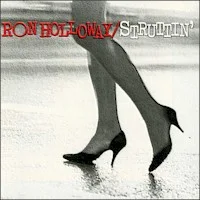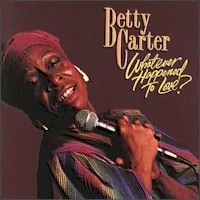Time: 53:52
Size: 123.3 MB
Styles: Guitar jazz
Year: 2015
Art: Front
[5:44] 1. Influencia Do Jazz
[3:29] 2. Darn That Dream
[5:04] 3. Meditation
[3:44] 4. Joanna Francesa
[6:11] 5. Muriqui
[4:15] 6. Setembro
[3:16] 7. All The Things You Are
[5:12] 8. Nira
[4:08] 9. Lukinha
[4:35] 10. Love Letters
[5:26] 11. The Days Of Wine And Roses
[2:43] 12. Eu Preciso Aprender
It can be argued that the country that has most influenced the development of jazz, apart from the United States, has been Brazil. The sound of 1950s jazz, especially that of the cool school (best represented by the music of Miles Davis), had a huge influence on the evolution of bossa nova, which, once exported to the States, became a sensation and cemented itself to the lexicon of modern jazz. This opened the door for other Brazilian styles and artists to become recognizable to music fans worldwide.
Brazilian guitarist and composer Romero Lubambo grew up in Rio de Janeiro in a household filled with song. This was where his devotion to music began. Between playing various instruments and singing with his family, classical guitar studies and his exposure to music of all sorts via the radio, Lubambo became increasingly devoted to developing his own skill as guitarist and interpreter of music that he loved, namely Brazilian, classical and jazz. Naturally, the best setting to hear Lubambo s incredibly varied and highly personal guitar style has been solo. In early 2014, he delivered the wonderful Só Brazilian Essence, where he explored exclusively Brazilian compositions on solo acoustic guitar. On his new recording, Setembro A Brazilian Under The Jazz Influence, Lubambo splits his focus between Brazilian and jazz music and between acoustic and electric jazz guitar.
Lubambo has long been known for his work with artists like Dianne Reeves, Diana Krall and Luciana Souza, and with his collaborative group Trio Da Paz. His musical vocabulary has been lauded for years, especially in blending jazz and Brazilian popular musical forms. Setembro brings his influences full circle, as he performs jazz standards, tunes from legendary Brazilian composers, and his own compositions. The recording begins with a hypnotic rendition of Carlos Lyra s Influência Do Jazz on acoustic guitar, which is followed by a deftly played electric version of the Van Heusen classic Darn That Dream. Jobim and Mendonça s Meditação follows with Romero on warm electric. Chico Buarque s Joana Francesa is a meditative masterpiece on acoustic guitar, while Lubambo s own Muriqui is a great example of advances in the Brazilian guitar tradition by one of its best adepts. The Ivan Lins and Gilson Peranzzetta classic Setembro is stripped down into a beautiful minimalist ballad. The Kern/Hammerstein jewel All The Things You Are is danceably percussive on acoustic and the guitarist s Nira slows down the proceeding with an ambient ballad on electric. Lukinha is another original that has a perfect balance between resonant restraint and dexterous pyrotechnics. Victor Young s Love Letters is gorgeously played on electric, as is the Mancini/Mercer gem Days of Wine and Roses. The recording concludes with Marcos and Paulo Valle s Preciso Aprender a Ser Só, a charming and slightly offbeat acoustic ballad.
Romero Lubambo s Setembro A Brazilian Under The Jazz Influence is a fabulous aural portrait of a musician that bridges the divide between jazz and Brazilian popular music. His fantastic ability to entrance a listener on whatever style and guitar that he chooses is on full and dynamic display.
Brazilian guitarist and composer Romero Lubambo grew up in Rio de Janeiro in a household filled with song. This was where his devotion to music began. Between playing various instruments and singing with his family, classical guitar studies and his exposure to music of all sorts via the radio, Lubambo became increasingly devoted to developing his own skill as guitarist and interpreter of music that he loved, namely Brazilian, classical and jazz. Naturally, the best setting to hear Lubambo s incredibly varied and highly personal guitar style has been solo. In early 2014, he delivered the wonderful Só Brazilian Essence, where he explored exclusively Brazilian compositions on solo acoustic guitar. On his new recording, Setembro A Brazilian Under The Jazz Influence, Lubambo splits his focus between Brazilian and jazz music and between acoustic and electric jazz guitar.
Lubambo has long been known for his work with artists like Dianne Reeves, Diana Krall and Luciana Souza, and with his collaborative group Trio Da Paz. His musical vocabulary has been lauded for years, especially in blending jazz and Brazilian popular musical forms. Setembro brings his influences full circle, as he performs jazz standards, tunes from legendary Brazilian composers, and his own compositions. The recording begins with a hypnotic rendition of Carlos Lyra s Influência Do Jazz on acoustic guitar, which is followed by a deftly played electric version of the Van Heusen classic Darn That Dream. Jobim and Mendonça s Meditação follows with Romero on warm electric. Chico Buarque s Joana Francesa is a meditative masterpiece on acoustic guitar, while Lubambo s own Muriqui is a great example of advances in the Brazilian guitar tradition by one of its best adepts. The Ivan Lins and Gilson Peranzzetta classic Setembro is stripped down into a beautiful minimalist ballad. The Kern/Hammerstein jewel All The Things You Are is danceably percussive on acoustic and the guitarist s Nira slows down the proceeding with an ambient ballad on electric. Lukinha is another original that has a perfect balance between resonant restraint and dexterous pyrotechnics. Victor Young s Love Letters is gorgeously played on electric, as is the Mancini/Mercer gem Days of Wine and Roses. The recording concludes with Marcos and Paulo Valle s Preciso Aprender a Ser Só, a charming and slightly offbeat acoustic ballad.
Romero Lubambo s Setembro A Brazilian Under The Jazz Influence is a fabulous aural portrait of a musician that bridges the divide between jazz and Brazilian popular music. His fantastic ability to entrance a listener on whatever style and guitar that he chooses is on full and dynamic display.
Setembro mc
Setembro zippy




















